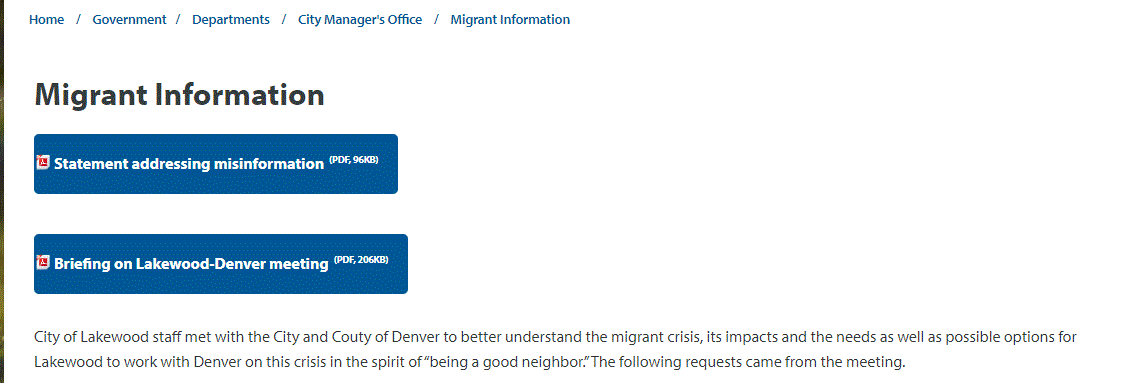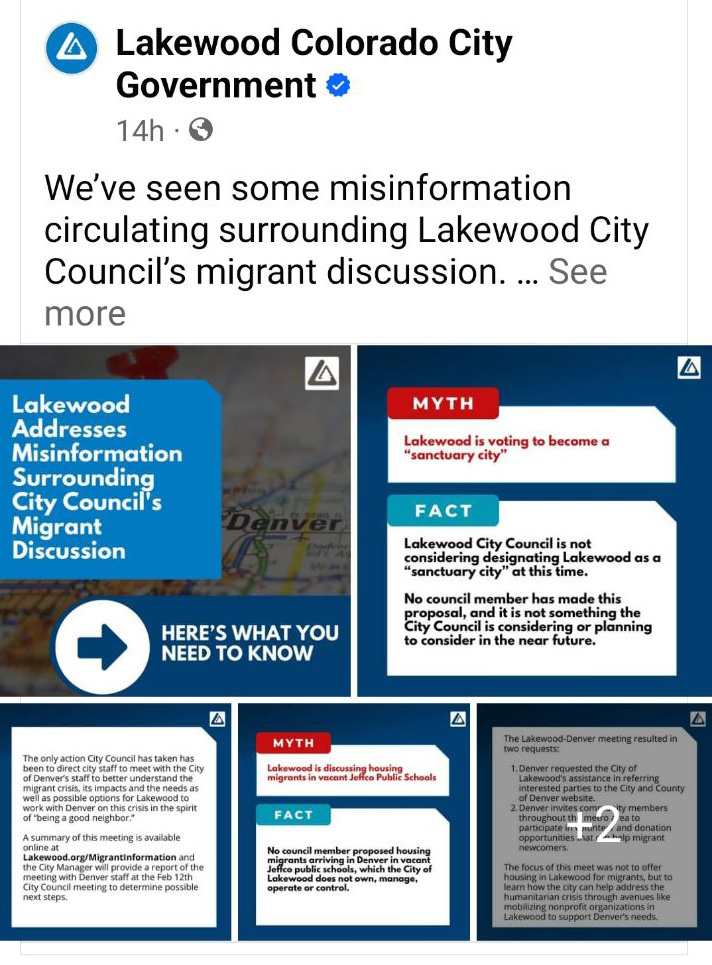Two weeks ago, Lakewood Informer opened a survey to find out what residents were thinking about supporting the homeless and migrants. Lakewood doesn’t ask IF or HOW you want to support these communities. Residents are generally presented with fully implementable plans. See the Navigation Center for an example. This survey was an attempt to bridge the gap in asking the residents what they thought. It had as much turnout as many city surveys (100-200 respondents).
Thank you for your feedback!
Key Findings
- Most respondents did not agree with the cities current plan for a low-barrier shelter
- If people were to provide homeless assistance, the most favored alternative was a shelter that would require sobriety, self-help or responsibilities (there was no survey option for doing nothing)
- Most respondents don’t want “free money” assistance
- Homeless and migrant assistance are intertwined, or at least support by the same people
- There were more people interested in answering a survey if anonymity was possible
Perhaps the most interesting finding was the strong correlation between free-money advocates and their personal spending. In simple terms, a person who would use free money, would also pay the most themselves (over $500). And exactly the opposite was also true, a person who wouldn’t use free money also wouldn’t pay it for themselves (0-$100).
So some people would take any amount of money or pay any price for homeless or migrant assistance.
Does this indicate that there are big spenders out there who could finance this project through their own philanthropy? Or does it suggest that the people who support the use of free money think it’s WORTH that much but really don’t expect to pay for it? Does it suggest that one group understands that free money isn’t free while the other does?
There is an apparent disconnect between the need for free money and the availability of funds.
Results:
Note: This survey was closed before the emergency citizens’ meeting which includes about 100 respondents.
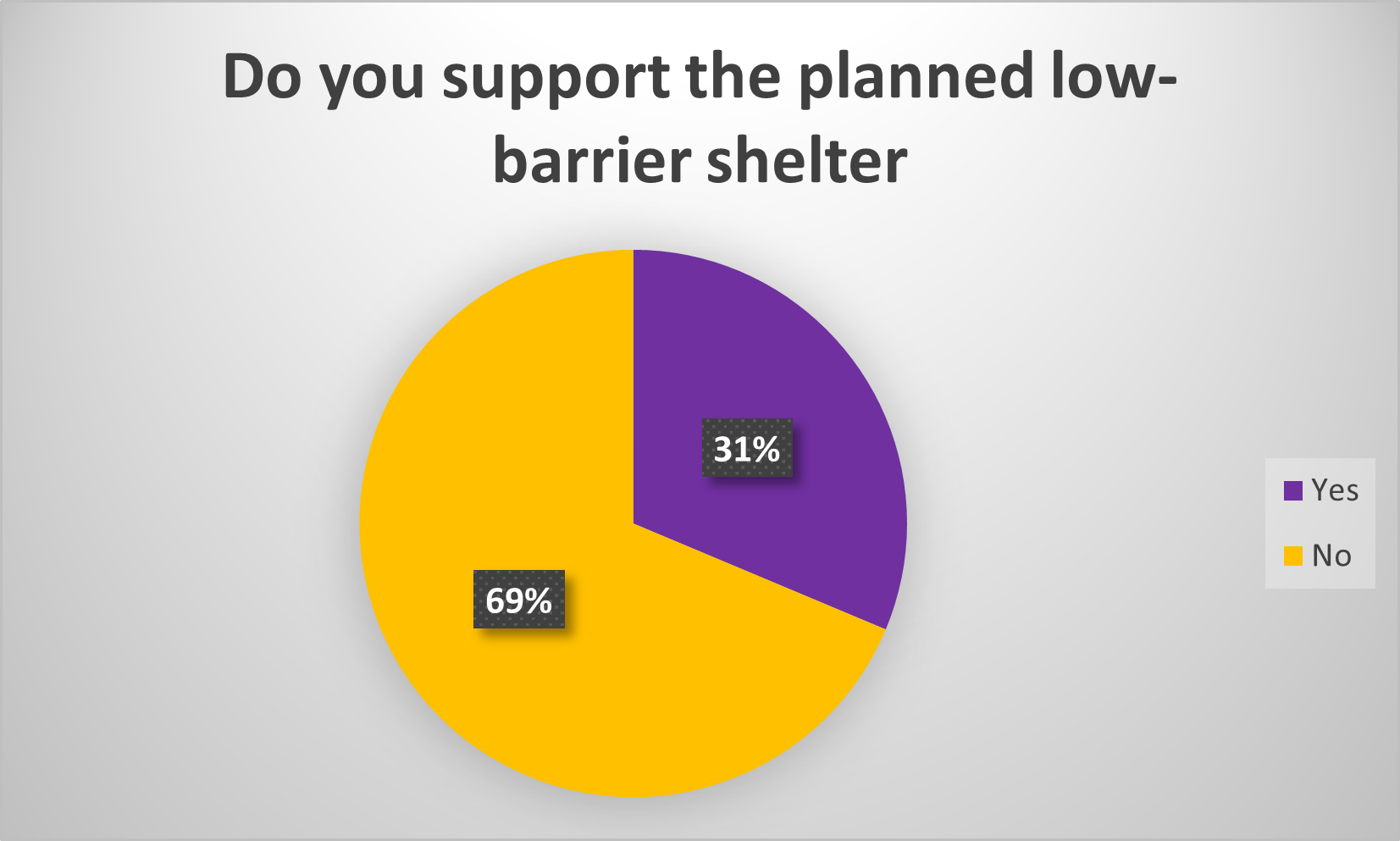
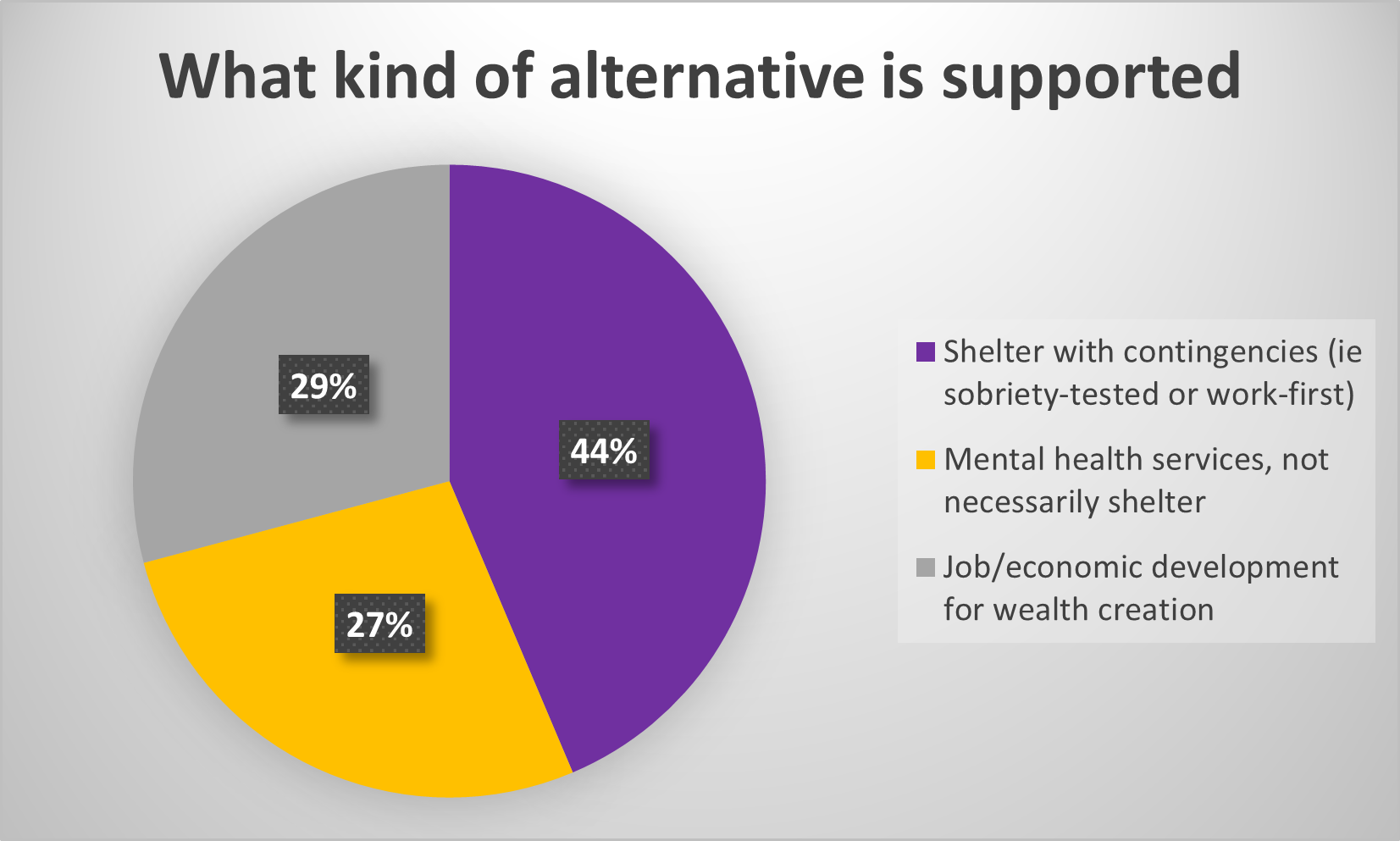
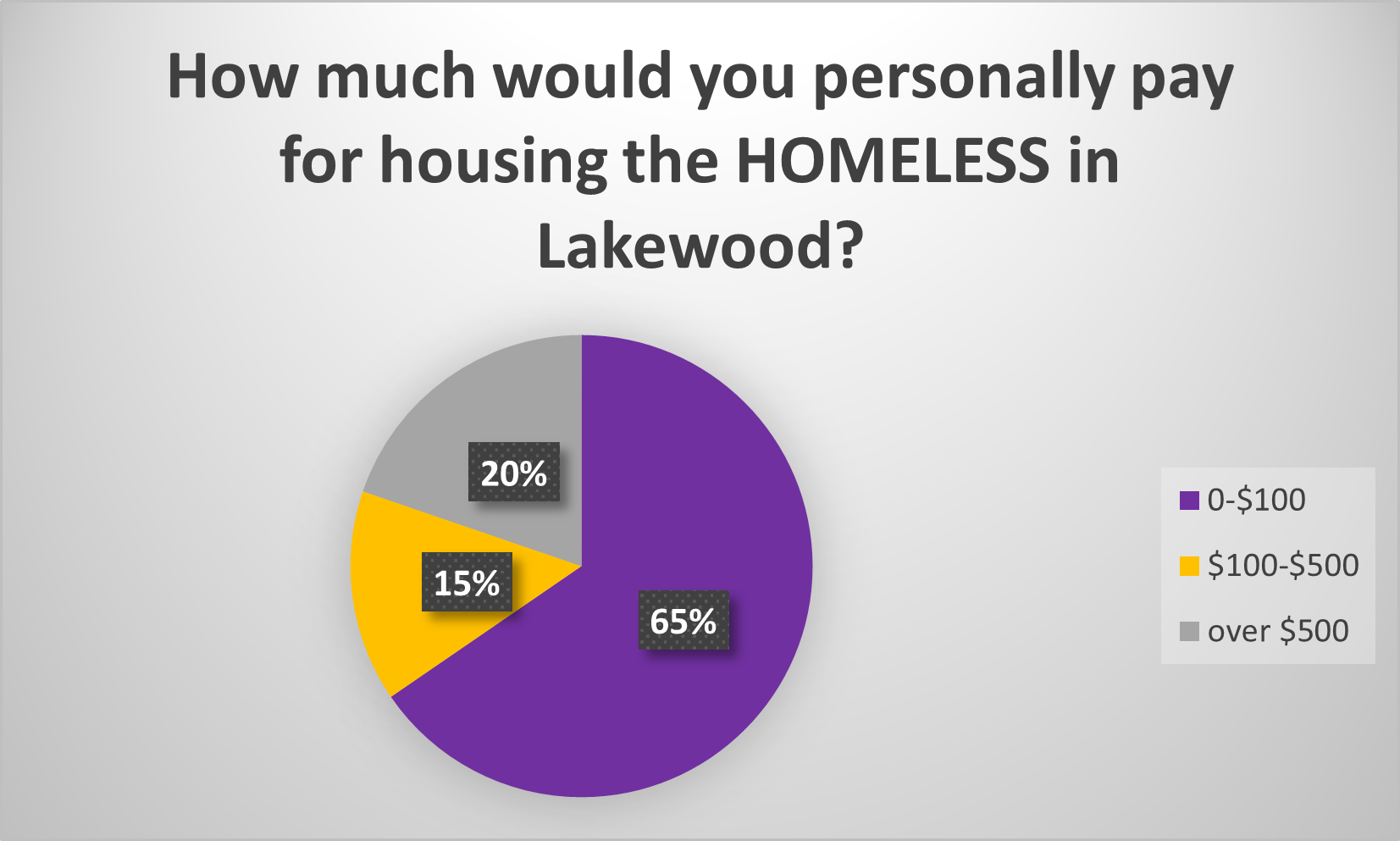
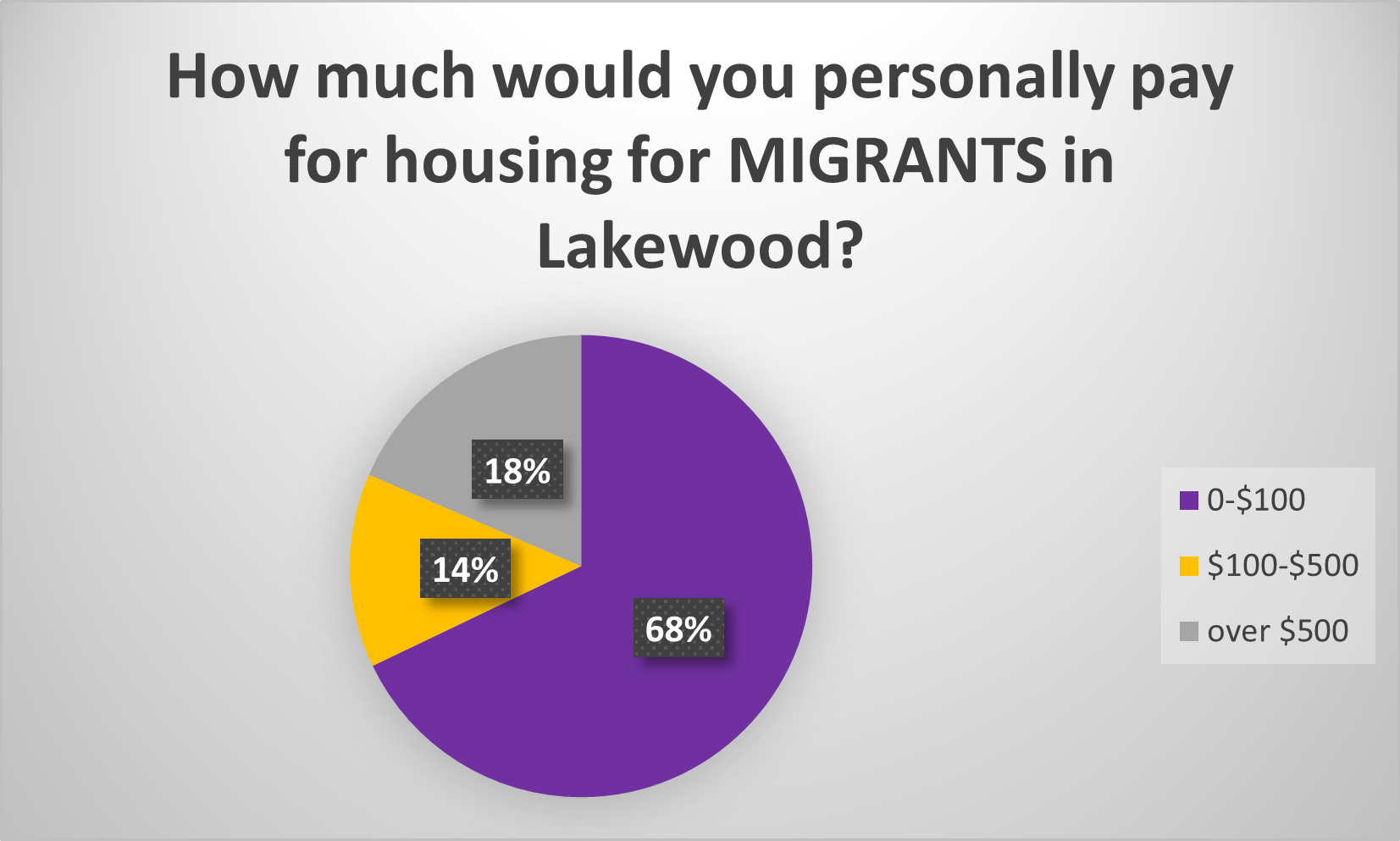
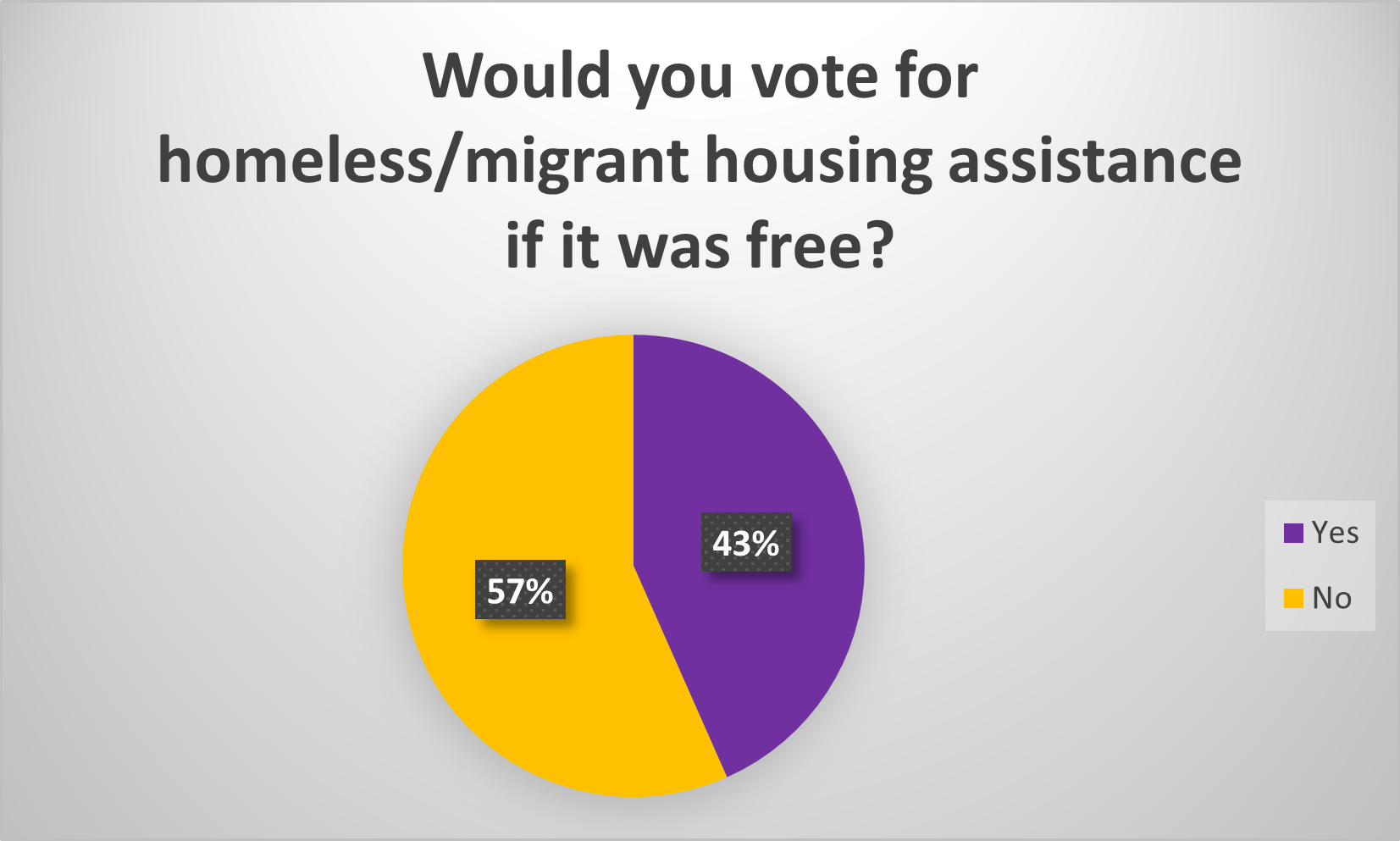
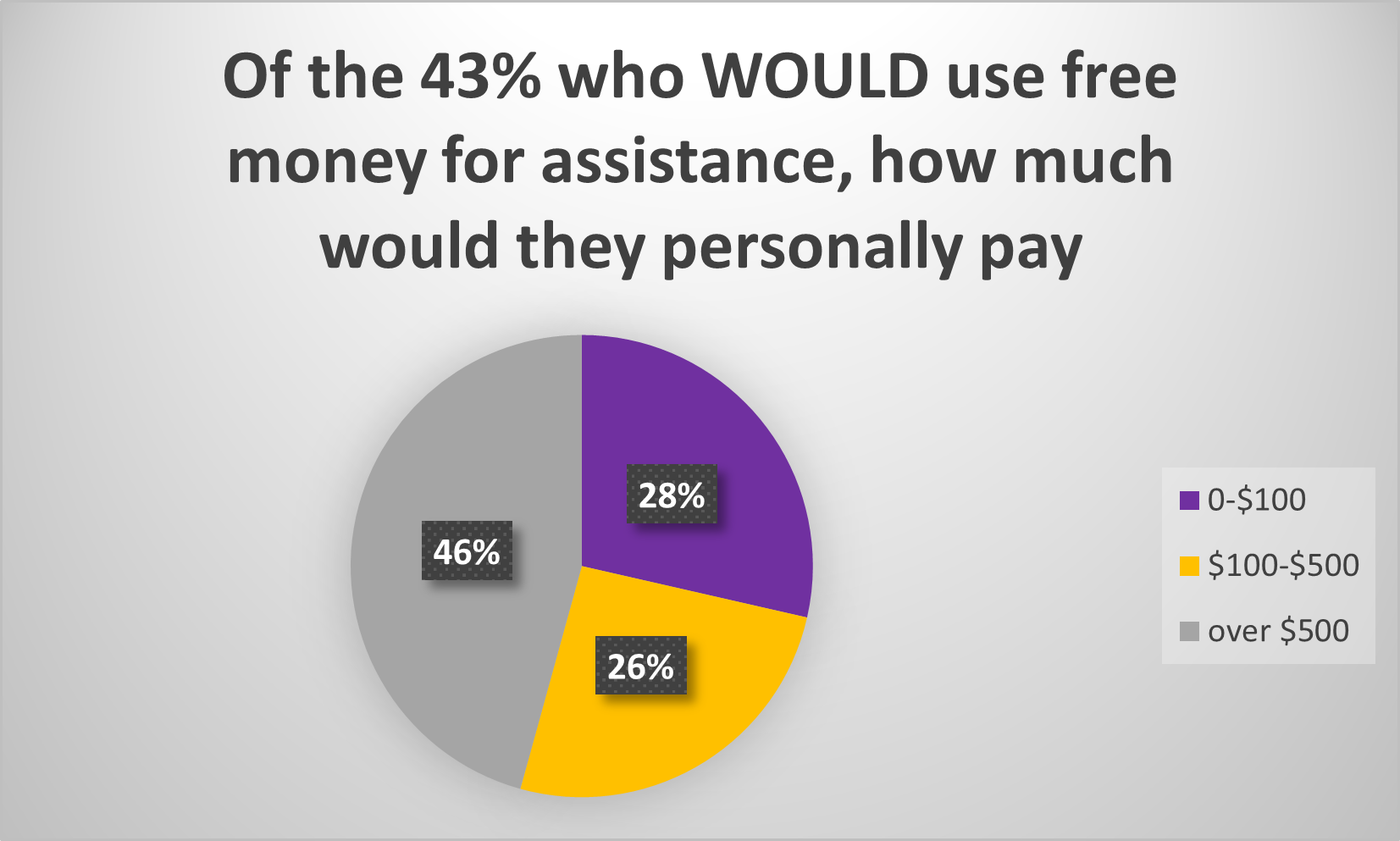
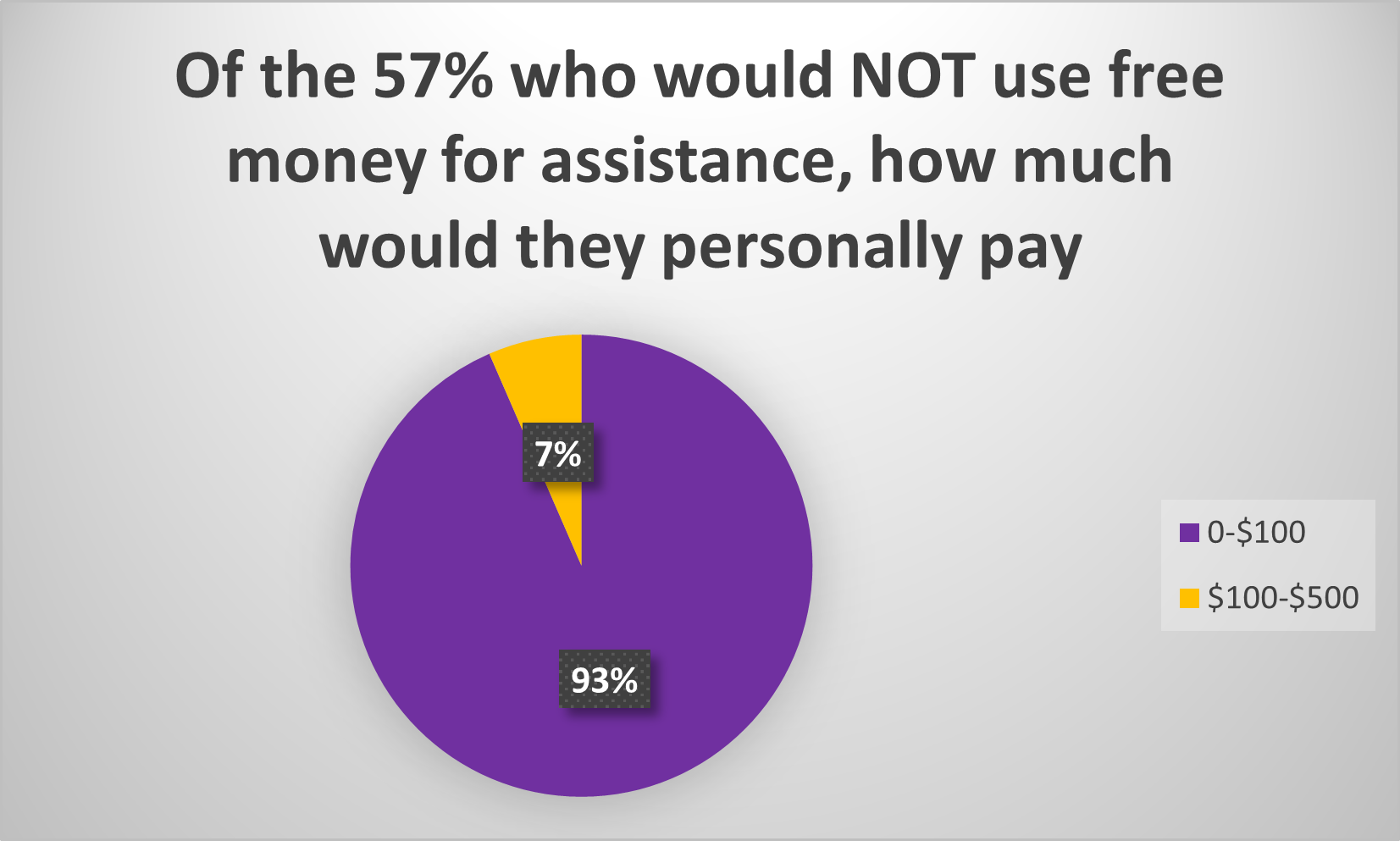
Reader Recommended Business: Karen M Sweat, Certified Public Accountant

